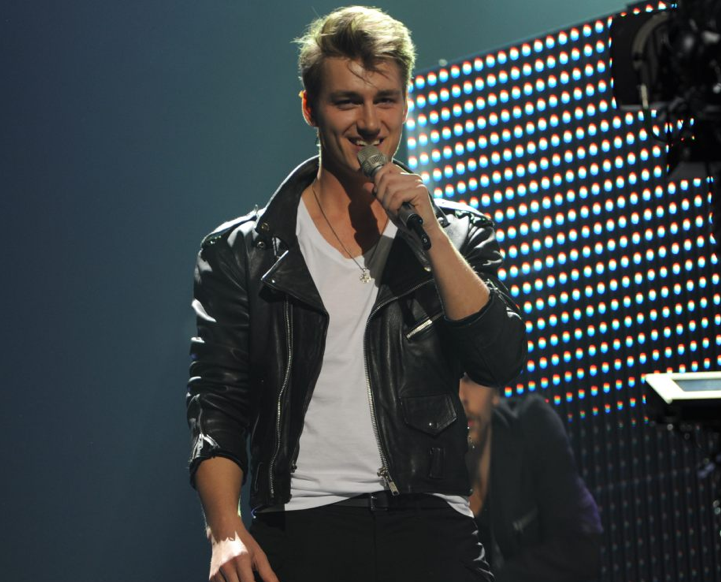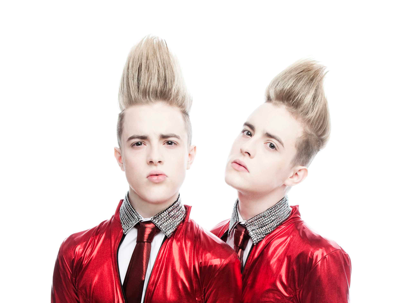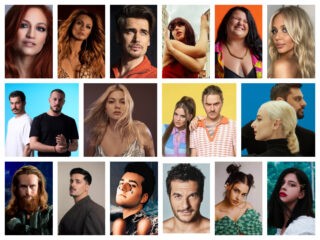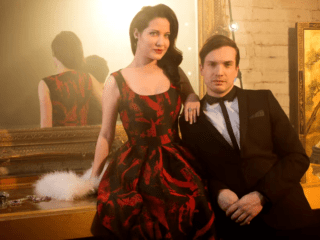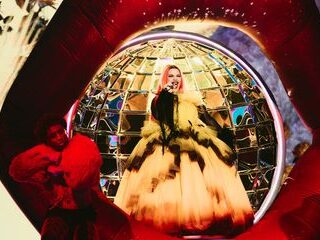Last year Armenia’s Eurovision entry centered its stage act around a 100-lb. replica of an apricot stone. So it wasn’t exactly surprising when, during today’s first dress rehearsal in Düsseldorf, the Armenian delegation wheeled Emmy onto the stage in a larger-than-life boxing glove with her name spelled out in diamonds. With her solid vocals, skimpy clothes and well-choreographed dance routine, Emmy had a clear message for the 42 other contestants at Eurovision 2011: she’s ready for a fight.
WATCH:
“Boom Boom” is classic Eurovision: frothy, energetic and written with the help of Google Translate. No one can deny that Emmy has a voice. More questionable is whether she fully grasps the English language. But if you mine the awkward phrasing of the opening bars, you’ll realize the song unpacks the lives of two people who let bickering stand in the way of their love.
My days and nights are passing, long hours are running/ But we are still fighting/ The love is still so shining, why are we denying?/ I really don’t know why
The nonsensical chorus suggests the couple’s explosive sexual chemistry paves the way toward reconciliation.
Boom boom, chaka chaka, your kiss is like a, like a/ Boom boom, chaka chaka, your love is like a, like a/ I wanna say that one thing is true (True)/ I’m in love with you
Emmy never tells us what her lover’s kiss is actually like, but the video implies it’s as powerful as a punch delivered by a boxer wearing silver stilettos and black spandex. With this in mind, boxing becomes an analogy for love, and the repetition of “boom boom” transforms from a phrase about sex to a comment on the bruising nature of relationships. This interpretation has legs. Although “chaka chaka” sounds like the Spanish euphemism for sex (“chaca chaca”), it actually means “nothing” in Armenian. There really is meaning in the madness. First love feels like a sweaty contact sport. Then it feels like nothing.
“It’s a very catchy song,” Emmy explained at a press conference at Eurovision. “The story tells of a girl who’s fallen in love with a guy doing nothing except boxing and sports. She asks him to come to the love ring instead of the boxing ring.”
That Armenia would come prepped to stage a boxing match is appropriate on a number of levels. The historic conflict between Armenia and its neighbor Azerbaijan frequently rears its ugly head at Eurovision. Last November, when it became clear Armenia’s Vladimir Arzumanyan had won the Junior Eurovision Song Contest, the Azeri state broadcaster cut off transmission of the program in Baku. In 2009 Azeri police questioned citizens who voted for the Armenian act, and suggested they were unpatriotic.
Armenia hasn’t always played clean, either. It used the 2009 contest to protest Azerbaijan’s control of Nagorno-Karabakh, a disputed region populated largely by Armenians. As Armenia’s representative announced the results of the Armenian televote, she flashed a large photo of “We Are Mountains”–a statue that symbolizes the Armenian population of Nagorno-Karabakh. As you can see, it wasn’t exactly a subtle stab:
More than a few critics have suggested the song’s staging is a bit aggressive, and reminded Emmy that fighting has no place in a song contest. She’s brushed all of that aside. “The song is me,” she says. “Positive, full of energy and love.”
Prediction:
Armenia has never finished lower than tenth at Eurovision, and it has made the final every year it has competed. Emmy (probably not her real name) competes in the first semi-final. Although bookies believe she may finish out of the Top 10 and therefore miss out on the final, her performance at the dress rehearsal has me convinced she’ll advance.
Given the upbeat nature of her song–all the punching and sequins really do stand out–she may even outpace semi-final one’s frontrunners Ell & Nikki. Given her memorable performance and catchy song, she certainly deserves to.

